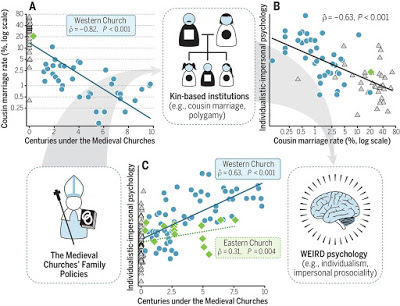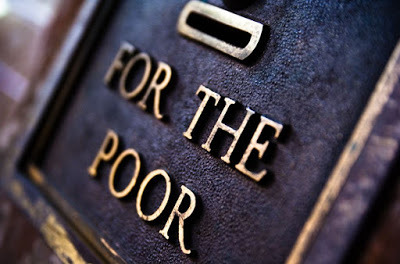Stephen Roney's Blog, page 278
November 11, 2019
Sign the Petition

Rebel media has launched a petition to support Don Cherry.
Sign here.
For details, read the post below.
'Od's Blog: Catholic and Clear Grit comments on the passing parade.
Published on November 11, 2019 18:19
Poppycock!
Demands are suddenly loud for the CBC to fire Don Cherry, because of the following on-air comment:
“You people … you love our way of life, you love our milk and honey, at least you can pay a couple bucks for a poppy or something like that. These guys paid for your way of life that you enjoy in Canada, these guys paid the biggest price.”
There are also calls for the head of co-host Ron MacLean, for seeming to agree instead of objecting.
MacLean has now publicly apologized and condemned Cherry’s remarks.
If this transcript is accurate, these calls are, in the literal sense, insane. They are out of touch with the reality of what Cherry said. All he said is that not buying and wearing a poppy is ungrateful. It surely is. To top it off, it seems in context as though he might be quoting someone else, not expressing his own sentiments.
He seemed specifically to be referring, when he used the term “you people,” to the people in downtown Toronto.
Cherry is being accused of “racism.” Yet he did not mention any race. If someone wants to read some specific race into the words “you people,” then any racism is clearly in their own minds, not, so far as we know, in Cherry’s.
It is more plausible to infer that Cherry was criticizing immigrants. If he was, “immigrant” is not a race. To make it about race is still a stretch. And even this much is inference. He might plausibly have been referring to young people, who predominate in the Toronto downtown. Or perhaps young immigrants, but disrespectful because they are young, not because they are immigrants. Or perhaps just urbanites, who think it unsophisticated to wear a poppy.
But even if he were thinking of race, should even this matter? Let’s stop and think for a moment. Why is it fine to criticize young people for being disrespectful of traditions, or to criticize Torontonians, but not immigrants, and not racial minorities? If nobody chooses their race, nobody chooses to be young either. People choose to live in Toronto in the same sense immigrants choose to live in Canada. The cases seem parallel. Yet criticisms of the young, and of Torontonians, are commonplace and considered witty and wise. Obviously, this is not equality: this is giving special privileges to immigrants and on the basis of race.
Criticism of anyone, including any group, must be in bounds. If not, we fundamentally lack freedom of speech, and automatically also equality before the law.
On top of this, this furor is all shockingly disrespectful of Don Cherry, a man who has made a significant contribution to our culture, intimately bound up with hockey as it is. He was, after all, a finalist when the CBC ran a popular vote on “the greatest Canadian.”
And the attack on him is an attack on Canadian culture. Surely a deliberate one.
If it is not simply stark raving mad.
'Od's Blog: Catholic and Clear Grit comments on the passing parade.
Published on November 11, 2019 10:40
Remembrance Day 2019
'Od's Blog: Catholic and Clear Grit comments on the passing parade.
Published on November 11, 2019 06:58
November 10, 2019
The Sky Is Always Falling-- podcast
Published on November 10, 2019 09:12
The Sky Is Always Falling
'Od's Blog: Catholic and Clear Grit comments on the passing parade.
Published on November 10, 2019 08:59
The Sky Is Always Falling
 The well-educated will recognize the story illustrated immediately.
The well-educated will recognize the story illustrated immediately.My columnist buddy Xerxes argues that the experts have been warning us of dire global consequences, from overpopulation, climate change, and the depletion of natural resources, for centuries. Since the time of Malthus. Just the other day, a new battalion of 11,000 scientists warned of dire imminent consequences from global warming. “Planet Earth is facing a climate emergency.”
He suggests it is high time to start listening.
He is right: we have been hearing this for decades, centuries. When I was finishing high school, our Biology teacher made us all buy and read Erlich’s The Population Bomb. It warned us of a catastrophic world famine coming in the 80s. Since this was our own near future, we had better be prepared for it. Time magazine was warning, at about the same time, of the impending Ice Age. My best friend’s life plan was to emigrate to New Zealand. He figured that would be the last place for the global cataclysm to reach. For we would soon all be killing each other over access to water.
Cut to the chase: every single such prediction of pending doom precise enough to be scientifically tested, since the time of Malthus, has been proven wrong. Instead, the world is substantially wealthier, on the whole, than it was in Malthus’s time, or even Erlich’s.
So why would we believe the experts?
The problem is the problem of the boy who cried wolf.
Heard a podcast from Levitt and Dubner, the folks who wrote Freakonomics, a while ago. Highly recommended podcast. Studies they cite find that expert predictions in any field are usually wrong. They are less accurate than chance, and less accurate than if you asked the average man in the street.
The reason for this is explained in Aesop’s fable. Most times, for most things, in most ways, the future is going to be continuous with the past. Dramatic change is rare; if it were not, it would not be dramatic. But more of the same is not interesting or newsworthy. And it is hard to convince us that we need experts to tell us things are fine as they are.
So every expert has a vested interest in predicting dramatic change; ideally, a doomsday scenario, requiring their urgent help. If they do this, they get the media, they get the grants, they get the academic chair, they get fame and fortune. If they do not, they risk losing their livelihood.
You would think over time expert advice would be discredited for usually being wrong. But here’s another little psychological quirk: people tend to forget false predictions, and remember successes. Again, predictions of dramatic change that did not come true are not very newsworthy or exciting. Predictions that did, if of some dramatic change, are memorable and striking. Astrology, fortune telling, and witch doctoring have succeeded for millennia on this basis.
The moral: we need to spend less time listening to the experts, and more time reading the ancient wisdom.
For example, “Chicken Little” might also apply here.
Steve
'Od's Blog: Catholic and Clear Grit comments on the passing parade.
Published on November 10, 2019 07:12
November 9, 2019
Night in the City
As a onetime bassist, I have always loved this Joni Mitchel track for its bass run. Just so fine.
And guess who the bassist is?
Steve Stills.
Had he taken up the instrument, he might have been the greatest ever.
'Od's Blog: Catholic and Clear Grit comments on the passing parade.
Published on November 09, 2019 10:21
A Glimpse into the Future

An interesting study just published in Science concludes:
“countries with longer historical exposure to the medieval Western Church or less intensive kinship (e.g., lower rates of cousin marriage) are more individualistic and independent, less conforming and obedient, and more inclined toward trust and cooperation with strangers. Focusing on Europe, where we compare regions within countries, we show that longer exposure to the Western Church is associated with less intensive kinship, greater individualism, less conformity, and more fairness and trust toward strangers. Finally, comparing only the adult children of immigrants in European countries, we show that those whose parents come from countries or ethnic groups that historically experienced more centuries under the Western Church or had less intensive kinship tend to be more individualistic, less conforming, and more inclined toward fairness and trust with strangers.”
Put more simply, our high levels of social trust, which allow for individual freedom, democratic institutions, relative social peace, and an efficient economy, are based on historic Christian values.
If the study is right, it follows that:
Undercutting or discarding traditional Christian values will probably lead to a loss of freedom, social order, and prosperity.Importing large numbers of immigrants from historically non-Christian countries threatens social peace, prosperity, and democratic institutions. Especially if they are encouraged to preserve their previous traditions, as with “multiculturalism” and a stigma against “cultural appropriation.”
All social science studies are dubious. But this one ought at least to prompt some debate.
'Od's Blog: Catholic and Clear Grit comments on the passing parade.
Published on November 09, 2019 07:26
Lies, Damned Lies, and Politics
 And if you don't like this face, I have this other one...
And if you don't like this face, I have this other one...It is alarming how everyone in the media is going after Andrew Scheer for being Catholic. This injection of religious prejudice is something Canada has not seen before—at least until they went after Stockwell Day. And for good reason. In a nation nominally divided about 50/50 Protestant/Catholic, it is profoundly dangerous to civil peace.
 The Canadian balancing act.
The Canadian balancing act.Not to mention being discriminatory. JJ McCullough makes a good point: imagine the blowback if the media similarly went after Singh for his Sikh beliefs. Indeed, if Scheer were Muslim, this line of criticism would violate the notorious M-103, prohibiting “Islamophobia.”
It also seems to me that this attack encapsulates, quite probably intentionally, terrible practical advice to the Tory party. There is a substantial part of the public who agree with Scheer and the Catholic Church on these issues, roughly 50%, quite aside from the 50% who are nominally Catholic, and may be poked awake to that allegiance. And they are being represented by no other party. A fifty percent vote in Canada guarantees a perpetual majority. The last thing the left should want is for the Conservatives to run on being conservative.
Unfortunately, we cannot count on either the Canadian Conservatives or Andrew Scheer showing either courage or common sense on this matter. Class allegiances seem to trump either self- or public interests.
Scheer was recently asked, not for the first time, “Do you believe that being gay is a sin?”
And he answered:
“We made it very clear during the election, in the last few months and years, that our party is inclusive. We believe in equality of the rights of all Canadians. My personal opinion is that I respect the rights of every single Canadian. And my personal commitment is to stand up — that is my personal opinion — my personal commitment to Canadians is to always fight for the rights of all Canadians, including LGBTQ Canadians.”
The correct answer, for a faithful Catholic, would be a simple “no.”
It is hard to believe Scheer does not know this.
No, the Catholic Church does not believe, and has never believed, that being attracted to the same sex, “being gay,” is a sin. Homosexual ACTS are sins; the distinction is fundamental.
Nor does believing that homosexual acts are sins mean that, in the words of a recent Global story, “you believe that a significant number of your fellow citizens — even some whom are legislators — are morally deficient, defective.”
This is a gross misunderstanding not only of Catholicism, but of morality itself. Homosexual acts are sinful; so are fornication, masturbation, or using most forms of birth control. So is gossiping, or swearing, or getting drunk. And so on. All of which puts the average person with homosexual inclinations pretty much in the same boat as the average person generally. Nothing very special here about being gay. We all have temptations to sin. The greatest sin, to Catholicism, would be asserting that one is without sin.
It is worth noting that prominent homosexuals have historically most often found the Catholic Church their spiritual home: Andy Warhol, Oscar Wilde, Milo Yiannopoulos, Tennessee Williams, Evelyn Waugh.
Equally obviously, believing that homosexual acts are sinful does not require making them crimes. Nobody is calling for laws against masturbation, or gossip. Crime and sin are very different issues, and this is obvious as can be from the Biblical outset: Jesus was crucified by the state as a criminal. “Render unto Caesar what is Caesar’s, unto God what is God’s.”
All of this is no doubt too complicated to go into in a scrum outside a committee room; but why could Scheer not have simply and accurately answered “no”?
The real problem with Scheer is not his beliefs, but that he cannot be honest and straightforward. Even when it is to his benefit. He gives the constant impression of having a hidden agenda; because he has a hidden agenda. In his own mind, he is in the business of conning the people. That is what is hurting him.
We see something similar emerging in the US Democratic primaries. It took far longer than I thought it would, but Elizabeth Warren seems now to be slipping, and Bernie Sanders gaining, on this issue. Asked about her health care plans requiring higher taxes, Warren keeps giving evasive answers. Sanders responds, “of course they will. Nothing is free. But …”
This is the secret of Sanders’ remarkable impact last cycle, and also of Trump’s success. They don’t show contempt for the public. They don’t try to con. “I’m a socialist.” "What's bad about being friends with Russia?"
This is something of which Scheer seems incapable. And he is of course not alone; most of the politicos and the political commentators think along the same lines. They are uniformly urging him and the Conservatives to either change principles or lie more strenuously. Seeing Biden’s prospects fade further south, Michael Bloomberg is putting himself forward. The idea is that, as a “moderate,” he would have the best chance against Trump.
I suspect that calculation is no longer going to work. If people do not remember what you used to say, they can now look it up. Flips are flops. Principles matter.
Not at all incidentally, this is largely the same problem causing such turbulence for Pope Francis. He always prevaricates, no doubt thinking this is the smart thing to do to keep everyone happy. Instead, this is leading to growing rifts within the Church.
Compare the Catechism of the Catholic Church, produced by popes JPII and Benedict. We can go to it and see exactly what the teaching of the church is on homosexuality. Without it, how would we have countered the false charge that Catholics think being gay is a sin?
Ambiguity on principle is a principal tool of the Devil. It is why John the Baptist came, “to make the ways straight for the Lord.”

'Od's Blog: Catholic and Clear Grit comments on the passing parade.
Published on November 09, 2019 06:05
November 8, 2019
On the Giving of Alms

Walking through Toronto’s Annex neighbourhood today, I was buttonholed twice by people asking for charity.
It reflects well on human nature at least that there is a market for this.
On the other hand. I found it troubling, because I doubt either charity was actually doing anyone any good. And that money they are taking could be so useful to so many people.
The first charity was CAMH. It was asking for funds to send people into the high schools, to staunch the growing crisis of suicide among the young.
The problem here is that our current psychiatry/psychology approach has no idea how to prevent suicides. If psychiatry and psychology were effective, suicides should be declining, not growing. The rate of depression and of suicide has grown in tandem with the growth of psychiatric funding.
Someone—Einstein is usually credited—once said that madness is doing the same thing repeatedly and expecting different results. By that standard, spending money on more psychiatry is insane: unless it can offer some revolutionary new approach.
The second charity was collecting money to end child marriage, by educating girls in the Third World.
First, there is nothing wrong with “child marriages.” They used to be the norm in Canada too, as in the rest of the world, until a few generations ago. When we began to postpone marriage past the teenage years, we created teen angst. We keep young people all dressed up and with nowhere to go for what seems, at such a young age, an eternity. Leading them to resort to all kinds of unfortunate things: drugs, casual sex, violence, crime, mental illness … and suicide.
One charity here is causing the need for the other.
Second, there is a problem with funding girls and not boys. It is not just discriminatory: it tends to render males useless within the society. The result will be unwed motherhood and families breaking up, and this leads to poverty and worse in the next generation. Along with a lot of angry, idle, desperate young men wanting to break things or kill themselves.
All this is depressing, but there is a deeper issue too. Are people who give money to such charities, which then use it to do harm to those in need of help, praiseworthy for their good intentions? Or are they actually committing another sin?
I think the answer has to be the latter: it is sinful to give to such charities. The motive, in the first place, for doing so is generally cheap absolution. “I’m not a bad guy. I give to charity.” Kind of like going to church on Sunday, then slitting throats in good conscience the rest of the week. That kind of charity seems like buying God off.
It is a moral responsibility to educate your conscience. You need to make an honest effort to determine the likely results of your actions. If you do not, that is a sin of omission, and sins of omission count just as heavily as sins of commission. As it says in the Confiteor:
“In what I have done, and in what I have failed to do.”
There is a reason why it is sometimes said that charity begins at home. It is among those you know the best that you are best able to judge whether your efforts are actually helping or doing harm.
Beyond that, it seems wisest to concentrate on religious charities. They in general stand within a tried and proven tradition of what does and does not genuinely help.
'Od's Blog: Catholic and Clear Grit comments on the passing parade.
Published on November 08, 2019 12:28



